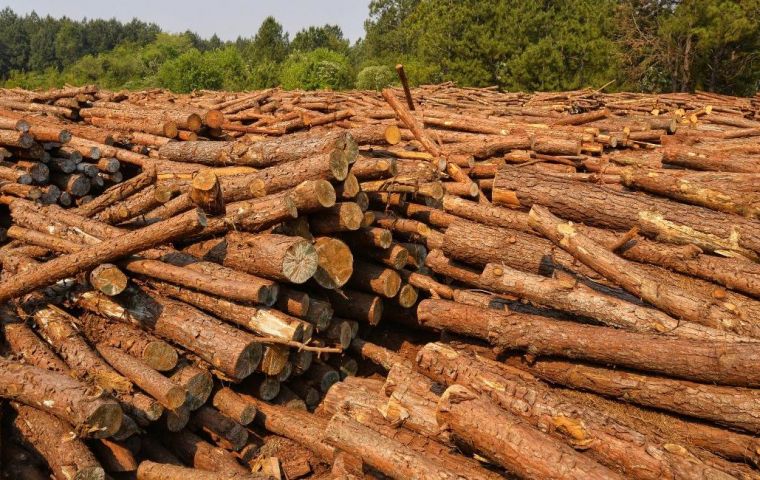MercoPress. South Atlantic News Agency
Argentina's timber industry risks closure due to lack of foreign inputs
 Paying AR$ 300 for US$ 1 does not add up when the export of the manufactured item yields a return of AR$ 150 for each dollar
Paying AR$ 300 for US$ 1 does not add up when the export of the manufactured item yields a return of AR$ 150 for each dollar The Argentine Chamber of the Wood Industry (CAIMA) has warned that local producers may soon be forced to halt all activity due to the lack of imported inputs stemming from the restrictions imposed by President Alberto Fernández's administration on purchases abroad.
Arauco Argentina, the largest forestry-industrial company in the country, which directly employs over 4,000 people in its 7 plants, is one of the companies on alert.
Boarding manufacturers are also on the brink of full paralysis, affecting up to 2,000 small and medium-sized companies, which represent some 60,000 jobs.
In order to preserve the Central Bank's reserves in foreign currency, the government has introduced changes to the import system (SIRA) so that companies can have dollars to buy import inputs or products, albeit under constraining restrictions.
The new SIRA only allows the entry of products deemed “indispensable,” such as medical and security supplies and a few others. Forestry was not included in that category. Hence, no inputs, which jeopardizes the manufacture of everyday life products used for personal hygiene, such as diapers, toilet paper, and tissue-paper towels, in addition to items used for packaging, plus furniture and others.
In the Argentine province of Misiones, producers fear that if inputs continue to be in short supply, the closing of several factories would have an impact on the entire territory's economy.
Among these inputs are chlorate, peroxide, and solid and liquid kerosene, among others.
The boarding industry is going through the same plight as the SIRA scheme has rendered the situation “unsustainable.”
Business leaders from the forestry-industrial sector have tried to dialogue with the authorities regarding the impact of the new SIRA, but so far to no avail.
“Having to go out and buy dollars at 300 pesos to buy our products, continue working and sell what we produce at a dollar at 150 or 160 pesos is unfeasible,” said Guillermo Fachinello, president of the Association of Forest Producers, Industrialists, and Traders of Misiones and Northern Corrientes (Apicofom).
The new mechanism is also hindering the delivery of goods shipped under previous regulations, Fachinello also explained.




Top Comments
Disclaimer & comment rulesCommenting for this story is now closed.
If you have a Facebook account, become a fan and comment on our Facebook Page!